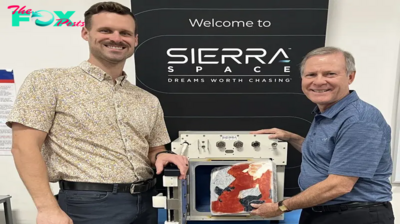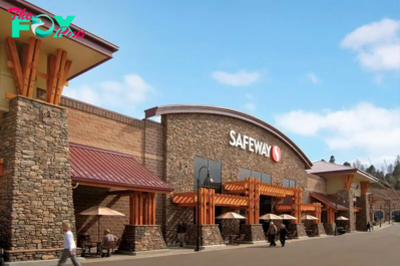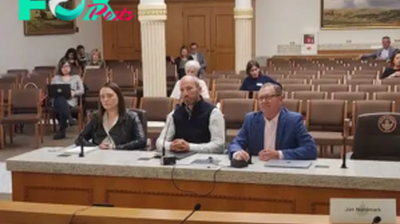Technology
Colorado offered $1.45 billion in incentives to attract new business. About 5% was claimed.
If all 35 companies approved in 2023 take Colorado up on its offer of a tax credit to move or expand here, they’ll create more than 12,700 new jobs in the state in the next eight years.
The past year’s slate of approved job-creation tax credits is valued at $146 million, or double the amount approved in 2022 — and for twice the potential new workforce. From startups like Alquist, which plans to 3D-print houses in Greeley, to lithium-ion battery manufacturer Amprius Technologies in Brighton and several space- or semiconductor-related firms weighing a move to El Paso County, the new cohort joins more than 300 past awardees that have qualified for $1.45 billion of tax credits and created around 20,000 jobs in 14 years.
But so far, most awards have gone untouched. In a Colorado Sun analysis of the state’s Job Growth Tax Credit, available since 2009, companies have requested $244 million as of 2022. But only about $66.3 million has been used to offset state tax revenue, according to Colorado Department of Revenue and Office of Economic Development and International Trade data. State tax data was only available through 2021, so by the end of 2021, about 5.4% of the total tax credits approved in 14 years had been used. That rate is expected to rise as more companies hire new workers. But many just haven’t met their goals.
“What I really love specifically about the Job Growth Tax Credit Program is it is based on the company’s projections over an eight-year period,” said Sean Gould, deputy director of financial analysis at the state’s Office of Economic Development and International Trade. “And it’s performance-based so some businesses never reach their employment goals that they projected and that’s OK. Then the amount they earn (in tax credits) is much less.”
Public incentives that use taxpayer revenues to support corporations are closely watched by government-accountability organizations like Good Jobs First, a critic of economic development subsidy programs. While the amount redeemed in Colorado job-growth credits is lower than what was approved, that’s still $66.3 million claimed.
“It’s long been our opinion that at a minimum, they (incentives) are too expensive relative to the benefits,” said Jacob Whiton, a research analyst at Good Jobs First. “To the extent that we’d ever think these programs can be effective, it’s about improving job quality and creating better jobs than would have otherwise existed, whether that means higher wages or better benefits. … But it’s all relative to the cost. Even a program that does target high-wage employment and steers it into places where it doesn’t currently exist, that comes at the expense (of) investments in public education in those places, on transit services and whatever the need may be.”
While Good Jobs had concerns with other state subsidies, it called Colorado’s job-growth incentive the one “redeeming aspect” because “job projections and outcomes are well-disclosed for each recipient.”
For growing companies, utilizing incentives is part of due diligence, said Chris Petersen, cofounder of RADICL Defense, a Boulder cybersecurity startup approved last January for a $2.4 million job-growth credit.
🎧 Listen here!
Go deeper into this story in this episode of The Daily Sun-Up podcast.
Subscribe: Apple | Spotify | RSS
“I think every entrepreneur should try to find the most efficient ways to capitalize the business as best they can,” he said. “If there are grants and economic development programs or partnerships that allow them to acquire capital or resources at a lower cost to the business … it’s a very important consideration.”
Petersen had every reason to pick Colorado. It’s where he built his last company, LogRhythm, an IT firm, in 2003. Private equity firm Thoma Bravo acquired a majority stake in 2018 and he left a year later. He still lives in the area. He grew up in Fort Collins and has family here. He’s also connected to the local security and tech community. But his wife was getting tired of cold winters so Florida was considered, too.
He said he hadn’t looked at incentives in the past but felt he had time to do so with RADICL, which aims to provide better cyber defenses for small businesses. However, he’d forgotten that LogRhythm had benefited. In 2016, the company was approved for a $2.2 million credit based on plans to create 74 new jobs. LogRhythm has shown up only once on the list of tax-credits issued, for $84,085 in 2017.
Since getting the tax credit a year ago, RADICL has doubled its staff to 15. Getting to 491 jobs to receive the maximum tax credit may seem like a long shot, but he’s been there.
“It’s hard to say if that’s the goal or not, but that certainly could be the outcome,” Petersen said. “We modeled it after the growth rate of LogRhythm that was realized. At LogRhythm in 2006, I think we were around 10 or 12 people or so, if my memory holds. Eight years later, we were around 500 people.”
Why redemptions are a fraction of what’s been approved
The low amount claimed is partly due to the long process to qualify, state officials said. Companies have 18 months to start and eight years to claim the credit.
Not all applicants make it that long. Some don’t stick around after the Economic Development Commission approves the offer. Or they don’t let the state know their choice. Some who’ve been approved don’t ask for any credit.

And some just don’t make their goals. Comcast Corp., which has received several job-growth awards in the past decade, didn’t take advantage of its latest one, $8.1 million for 635 new jobs at a new call center in Fort Collins in 2016. The facility closed in 2019 and never reached that number, a spokeswoman confirmed.
Others are trying again. “Project 14er,” a company developing better battery storage for vehicles and mobile devices, was first approved in July 2021 but didn’t meet the 18-month deadline to get started. It applied again in November, as “Project Solitaire” and was approved for $7,607,743 in credits if it creates 631 new jobs.
And there are other scenarios like United Airlines, which was awarded a $3,790,995 job-growth credit last February for 240 new jobs. The airline plans to use the credit toward expanding its flight training center in Denver. But the campus isn’t expected to be completed until 2027 so those tax credits won’t be touched for a few more years.
According to OEDIT, 72.8% of the 356 approved companies since 2009 did pick Colorado. But 14.9% have not moved forward or are inactive, 3.7% picked another state and 8.7% are still undecided. Again, not all companies keep the office in the loop.
-

 Technology3h ago
Technology3h agoPublic health surveillance, from social media to sewage, spots disease outbreaks early to stop them fast
-

 Technology5h ago
Technology5h agoTikTok, PTA host youth safety summit in Pakistan | The Express Tribune
-

 Technology8h ago
Technology8h agoWhy a Technocracy Fails Young People
-

 Technology20h ago
Technology20h agoTransplanting insulin-making cells to treat Type 1 diabetes is challenging − but stem cells offer a potential improvement
-

 Technology22h ago
Technology22h agoJapan's $26 billion deep sea discovery sparks serious environmental concerns | The Express Tribune
-

 Technology1d ago
Technology1d agoShould I worry about mold growing in my home?
-

 Technology1d ago
Technology1d agoBlurry, morphing and surreal – a new AI aesthetic is emerging in film
-

 Technology1d ago
Technology1d agoSpaceX’s Starship advances in spaceflight despite booster landing failure | The Express Tribune



























